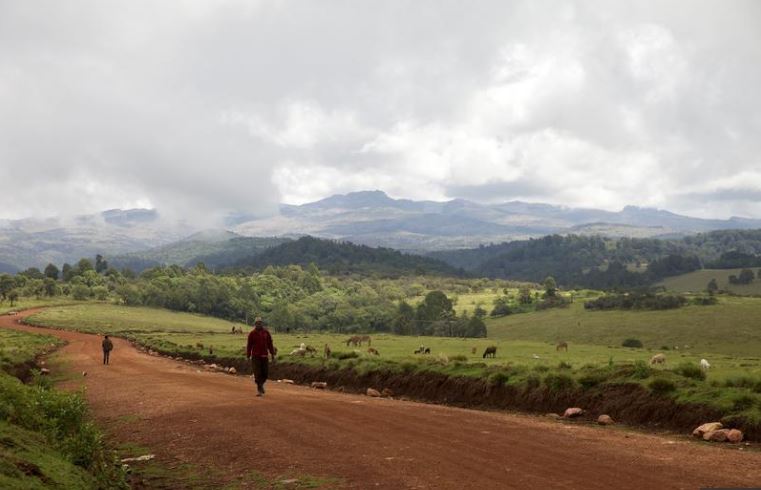Many African countries are plagued with corruption particularly land ownership fraud. In many reported cases the local cartels collude with officials to create parallel titles for parcels of land they want to acquire illegally. To tackle this concerning problem, a new generation of African startups is trying to use blockchain technology to create an immutable digital land registry.
According to Reuters, land records in most African countries date back to colonial times, and the ownership of most holdings is unclear especially where it has been held communally. Currently it only takes a small amount of pressure from cartels and other bad actors to create false land titles that effectively allow these corrupt groups to ‘legally’ steal land from citizens.
Blockchains can be used to store important information such as contracts, deeds and assets in an immutable and censorship resistant manner making it ideal for solving issues like this. Rwanda, Honduras and Georgia have already signed agreements to build blockchain-based land-titling systems. With these systems information is stored in immutable digital registries and cross-checked by a network of computer users, making it tamper-free, it is hoped it will be an effective tool in the fight against corruption.
Kenya – Land Layby Group
The Land Layby Group is already working in Kenya, to resolve disputes over land but it is currently a lengthy and expensive process. The Land Layby Group suffers from underfunding, understaffing as well as conveniently incomplete paperwork from registries.
Peter Tole, head of Land Layby Group, a Nairobi-based real estate firm believes that using the blockchain would help by making all land records publicly available online and eliminating multiple titles for the same piece of land. According to Tole, Land Layby Group can solve this by using its platform to manage land title registrations. The company plans to launch a private land registry in Kenya this month to help clients, mostly diaspora investors, buy property safely.
Tole stated:
“With blockchain, you don’t really need to trust the other party. The system itself is trust. I see most African governments adopting this (blockchain) technology that will revolutionise land registries.”
The registry will be powered by the ‘harambee token’. The Token will be used to reward users for adding correct entries to the blockchain while penalizing them for erroneous entries. A wrong entry means they lose those tokens, which at present only have nominal value.
For now, the Land Layby Group is only starting its operations in Kenya, but in the future, the company hopes to expand to Tanzania, Ethiopia, Ghana and Papua New Guinea.
Ghana – Bitland
Ghana’s problem is particulary severe according to the country’s land commission, more than 80 percent of landowners don’t have their titles registered. As most land is traditionally held with oral agreements between subsistence farmers and land-owning chiefs, 60 years after the country’s independence many landlords still don’t have their land titles registered. Bitland, a Ghana-based startup, much like Land Layby Group, is trying to introduce a new platform to help landowners register their land titles.
Bitland is looking to map the whole map of Ghana and has been helping farmers register their land online. As customary land rights are agreed verbally, Bitland’s surveyor’s interview farmers, their neighbours and chiefs to agree on each parcel’s boundaries. They plan to map the country’s landowner titles and plan to do the same in Nigeria as well.
Narigamba Mwinsuubo, Bitland’s founder states:
“We’re looking to map the whole of Ghana, “Once we’re able to register these … banks will grant loans and mortgages to families.”
Governmental Obstruction
According to Tole, Land Layby Group and others face enormous challenges when it comes to getting support from governments and state agencies. Although the new registry would complement state records by making them more reliable and easy to verify, it is not clear if governments will allow the technology.
Tole stressed:
“We expect some friction with the authorities because they may not really accept the functionalities of the harambee token.”
Even though this technology can greatly improve the land registry management, many African countries already declared against the use of cryptocurrencies. For example, Kenya’s central bank stated it wouldn’t support any form of cryptocurrency use in the country, and this can come as a hindrance for companies like Land Layby Group or Bitland to start their operations.
Although Governments and businesses around the world are now looking to explore new ways to store data, its animosity against cryptocurrencies is still the biggest impediment to the development of new solutions for old problems.









